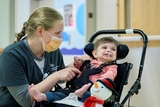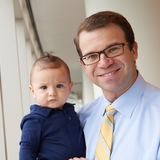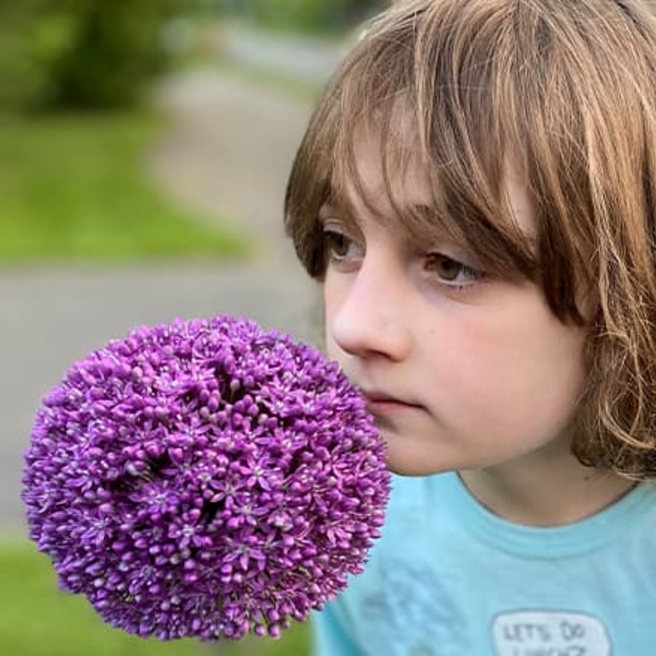Heart Function, Transplant, and Ventricular Assist Device Program

When your child’s heart is unable to pump enough blood to meet their body’s needs, that is called heart failure. Heart failure in children can be a frightening diagnosis, but we have options for managing this condition and delaying the progression of the disease. At Children's Hospital of Philadelphia (CHOP), our pediatric cardiac experts have extensive experience treating heart failure in children of all ages. Our goal is to investigate all the options that could improve your child's health and quality of life, including medications, the use of a mechanical device to help the heart pump blood and heart transplantation.
Our extensive support team will be by your family’s side through every stage of the treatment and transplant process.
How we serve you
We will give your child the very best care. To do this, we have specialized programs that help children during different stages of their heart failure treatment journey.
Conditions we treat

Why choose the Heart Function, Transplant, and Ventricular Assist Device Program
We have state-of-the-art facilities and next-generation technology. We deliver this high-level care through a family-centered approach that includes extensive training for you in how to care for your child at home.

Meet your team
Your child’s transplant team includes many different experts. Every team member is dedicated to supporting your child and family during each step — from waiting for a transplant to recovery and long-term monitoring.

Our location
Get information about the heart failure and transplant care we provide at our Philadelphia Campus.

Our research
We are constantly striving to make research discoveries that lead to better treatment options for children experiencing heart failure.

Our resources
We have gathered resources to give you information and help you find answers to your questions. We hope this helps your family deal with any challenges you face.

How we evaluate your child
If your child is referred to our Heart Transplant Program, you and your child will participate in a thorough evaluation. Our goal is not only to assess your child for transplantation but to explore other treatment options.
The waitlist process
If your child is a candidate for a pediatric heart transplant, your child will be listed through the organization that matches solid organ donations with candidates. Learn about who gets prioritized, what happens while you are waiting and more.

Resources for professionals
Everything you need to support your patient’s health, created and updated by our CHOP community of experts.
Your donation changes lives
A gift of any size helps us make lifesaving breakthroughs for children everywhere.

